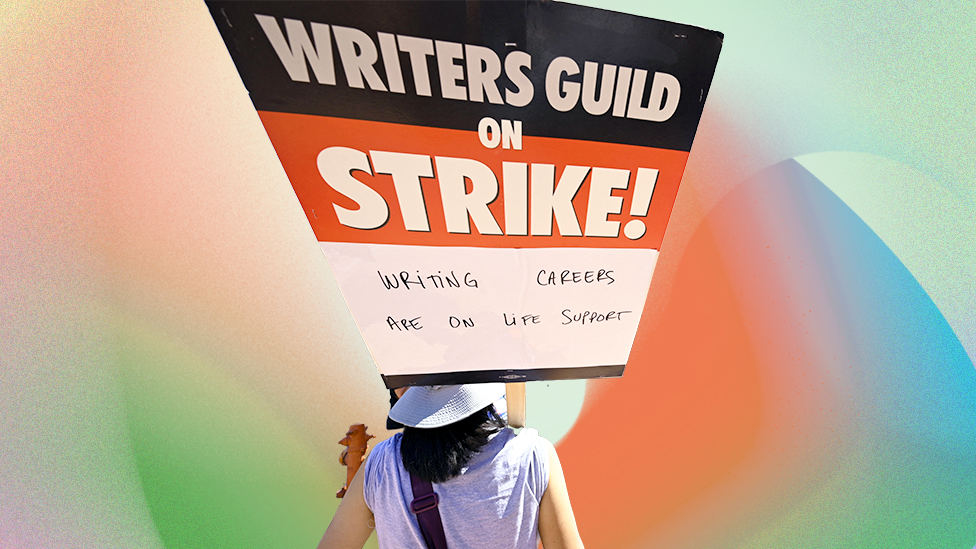Hollywood strike: Which shows will return as writers' strike ends?
- Published
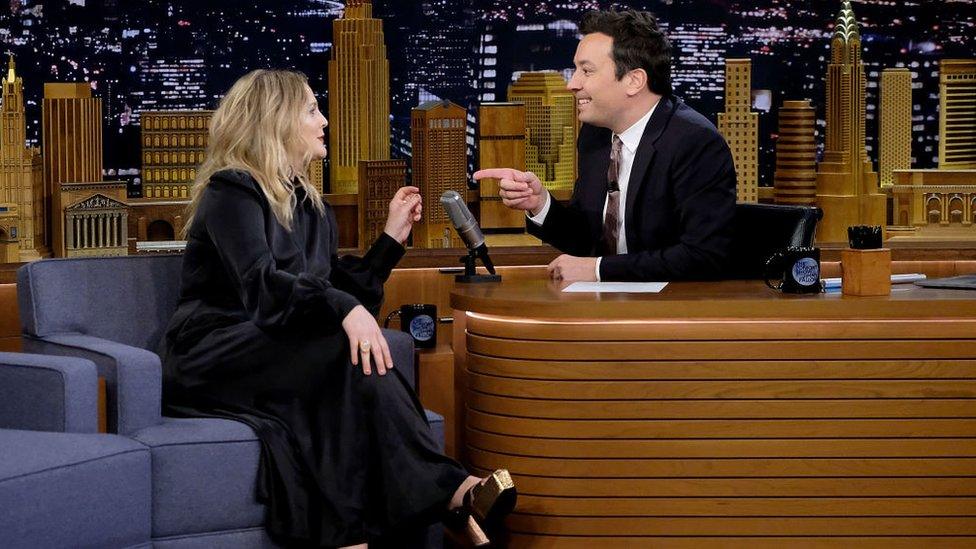
Drew Barrymore and Jimmy Fallon's programmes are both expected to be among the first to return.
Screenwriters and studios in the US have reached a tentative deal to end a 146-day strike that has paralysed the entertainment industry and left many fans without their favourite shows.
The potential end of the strike - the longest to affect Hollywood in decades - means writers will soon be able to return to work, setting the stage for some TV shows to be back on air as soon as next month.
The tentative agreement has no impact on a separate, parallel strike by actors that began in July.
Here's what we know about what comes next.
Which shows will come back?
The shows likely to get their writers back include The Last of Us, Billions, Stranger Things, The Handmaid's Tale, Hacks, Severance, Yellowjackets and Abbott Elementary.
However, the ongoing actors' strike means not all will be able to immediately resume shooting.
The first TV shows audiences will probably see back on air are those not involving actors, like daytime and late-night talk shows.
Jimmy Kimmel, Jimmy Fallon, Stephen Colbert and Seth Meyers are among the primetime chat show hosts whose shows can now return. Audiences can expect to see some of them back on air as early as October.
Daytime programmes such as The Drew Barrymore Show, The Jennifer Hudson show and The Talk are also likely to resume very soon.
"Their productions would all be in shape," a source told Hollywood publication Variety. "They brought back their crew for those shows. They'd have everybody local and ready, and could probably get going pretty quickly when they decide they can."
TV dramas and comedies will take longer to come back, both because of the actors' strike and the complicated logistics necessary to restart large-scale productions.
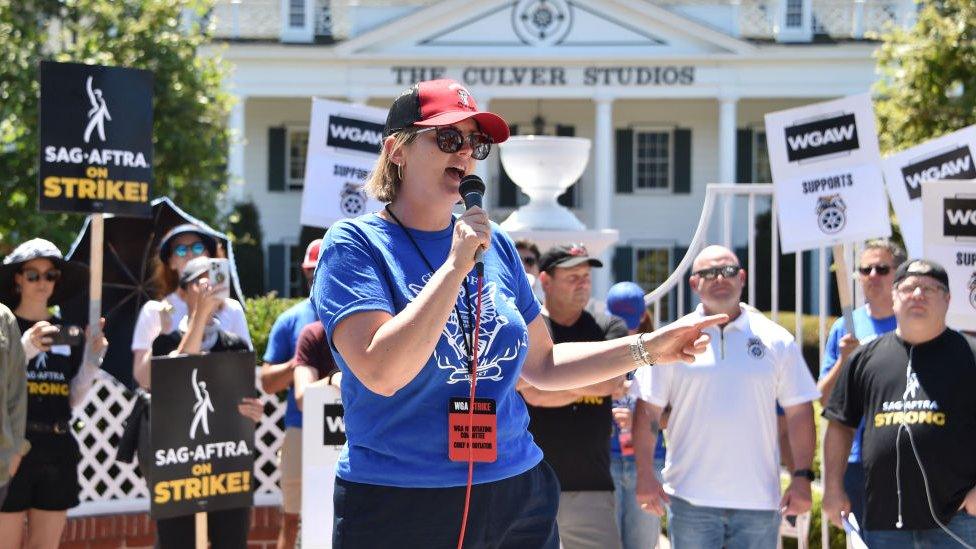
Ellen Stutzman has been leading negotiations on behalf of the Writers Guild
Who are the key players in the writers' strike?
For the last 14 years, Alliance of Motion Picture and Television Producers (AMPTP) president Carol Lombardini has led negotiations in contract talks with all of Hollywood's unions and guilds, including the latest round.
In that role, Ms Lombardini represents the interests of studios, production companies and streaming services.
In the opposite corner has been Ellen Stutzman, the chief negotiator for the Writers Guild.
She is a relative newcomer to the role, having taken up the position in February. Just two weeks later, contract talks began, which ultimately led to the strike that was called in May.
Disney CEO Bob Iger, NBCUniversal chair Donna Langley, Warner Bros Discovery chief executive David Zaslav, and Netflix co-CEO Ted Sarandos also all played key roles in getting talks restarted with writers over the weekend.
What will change for writers under the new deal?
The final language of the deal is still unclear, but it has been reported that the Writers Guild was able to obtain concessions on many of their primary demands, including an increase in royalties from streaming content.
Additionally, the studios made concessions on minimum staffing levels for shows.
According to US media reports, one of the last major hurdles in the negotiations was on the use of artificial intelligence (AI) in the industry.
While the deal's exact details will not be known until the agreement is finalised and made public, the Writers Guild was reportedly able to secure a guarantee that AI will not impact on writers' credits and compensation for their work.
In an email to its members published online, the Guild hailed the tentative agreement as "exceptional" with "meaningful gains and protection for writers".
"And though we are eager to share the details of what has been achieved with you, we cannot do that until the last 'i' is dotted," the memo added. "To do so would complicate our ability to finish the job."
The AMPTP's reaction to the proposed deal was considerably more muted, and said only that "the WGA and AMPTP have reached a tentative agreement".
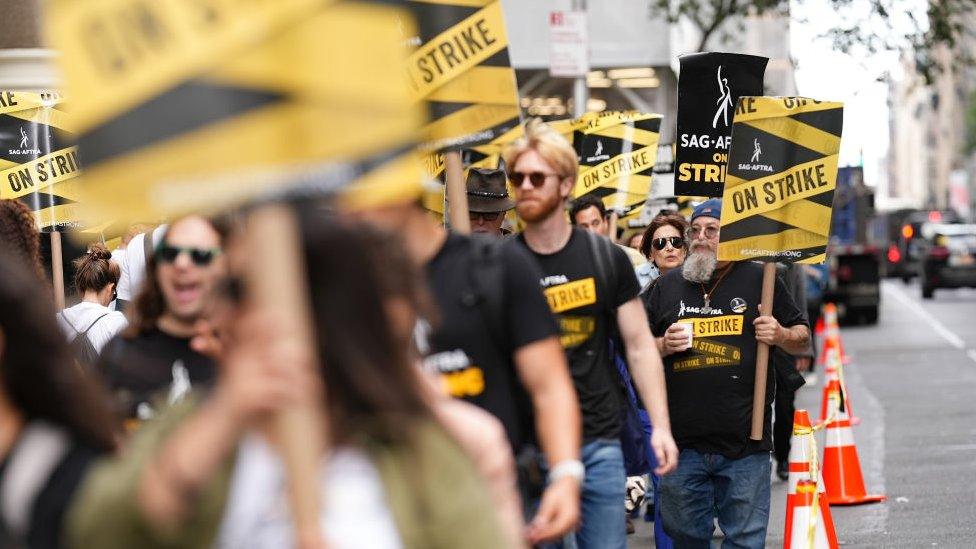
There are currently no talks planned between striking actors and the studios
Will the actors' strike end too?
The end of the writers' strike has no immediate impact on the ongoing strike of 160,000 members of the Screen Actors Guild-American Federation of Television and Radio Artists, better known as SAG-AFTRA.
The organisation's members walked out in July over their own similar dispute over pay issues and the use of AI in the industry.
For now, no talks are scheduled between SAG-AFTRA and the studios, which have balked at some of the actors' demands such as setting aside 2% of streaming revenue to be shared by a show's cast.
In a statement released after news of the tentative deal with the Writers Guild, SAG-AFTRA applauded their counterparts for "incredible strength, resiliency and solidarity", but made it clear that the organisation's strike will continue.
The statement also urged studios and streaming services to "return to the table" and "make the fair deal that our members deserve and demand".
Related topics
- Published2 May 2023
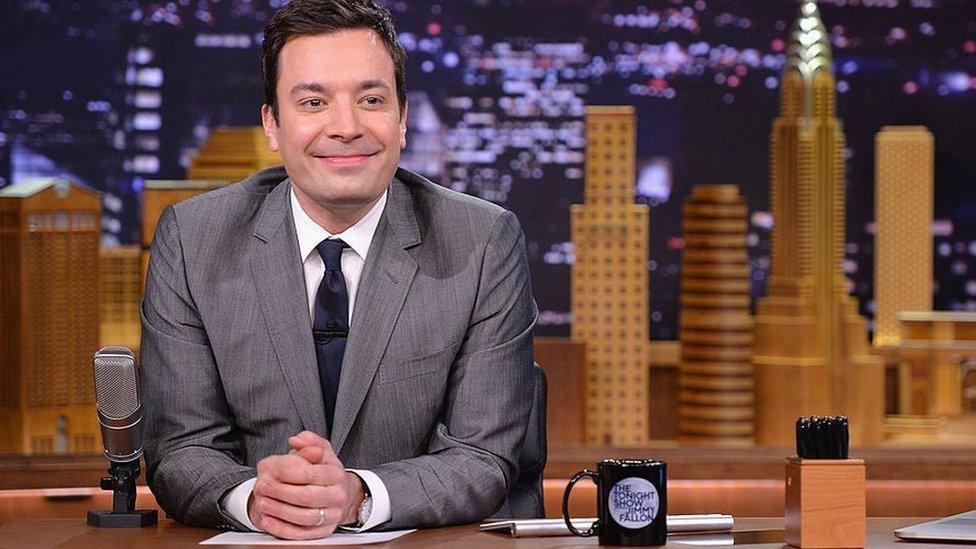
- Published25 September 2023
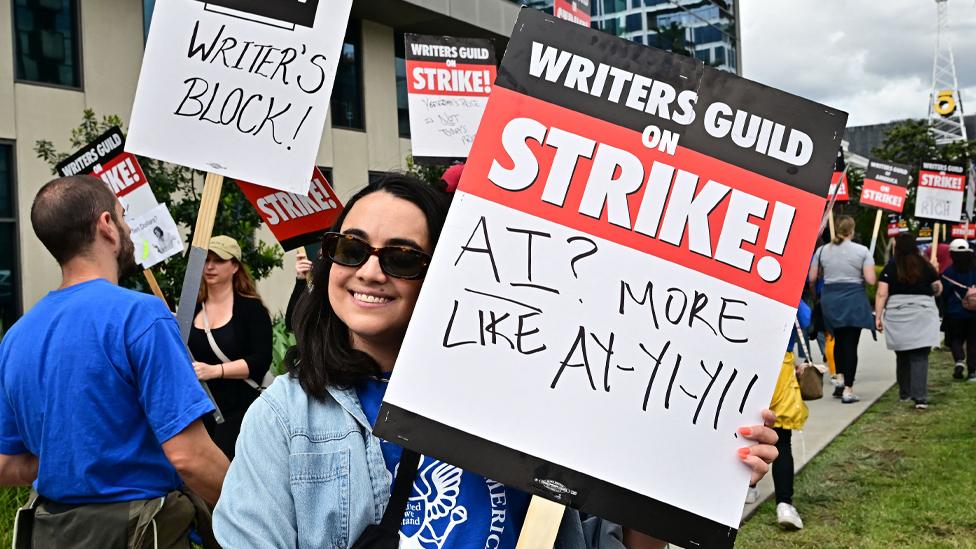
- Published27 July 2023
